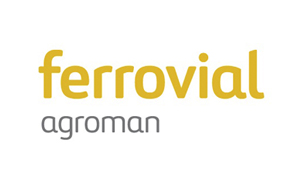Conflict Management Personality Types
Damian Killen and Danica Murphy composed Introduction to Type® and Conflict, a written guide that reveals the conflict management designs related to each one of the 16 personality kinds within the Myers-Briggs Type Indicator® (MBTI®) assessment.
Their concept states that the final two letters of another person’s Type® would be the strongest indicators of these conflict administration strategy. The next page determines the method that you make choices: by Thinking (T) or Feeling (F). The letter that is fourth the way you approach the surface world: by Judging (J) or Perceiving (P).
Thinking vs. experiencing
Those who find themselves susceptible to Thinking comprehend the opinions of most events, create rational alternative solutions, are firm in their stance, and concentrate on analyzing and tolerating others within the situation.
Those people who are vulnerable to experiencing empathize with the passions of all of the parties, create solutions for development, would prefer to change than make others change, while focusing on accepting and appreciating other people into the situation.
Judging vs. Perceiving
Those people who are prone to Judging make decisions centered on agreed-upon requirements, make the time that is necessary effortlessly problem-solve, have actually an obvious concept of the outcome, determine whenever to examine, and do not prefer to talk about conflict again once it really is resolved.
Those who find themselves susceptible to Perceiving usage facts and check always presumptions, workout negotiation, listen, take actively breaks, and look for mediators to make sure harmony.
Anyone may have certainly one of four combinations among these letters. We now have analyzed the conflict management styles that are best considering these particular areas of MBTI® character kinds.
1. Thinking-Judging (TJ)
If you should be a TJ, you can expect to manage conflict logically and make an effort to achieve a remedy at some point. Nevertheless, may very well not take time to pay attention to every person’s viewpoints and may hurry into an unstable solution. This may additionally suggest which you disregard the feelings active in the conflict by considering them become distracting.
TJs will likely approach A contending conflict management design.
As you are incredibly firm in your opinions and frequently disregard the opinions of other people, you will probably find your self dealing with dating ideas in Aurora a Competing style. The good qualities of the are that you will get a fast solution and keep your self-respect and self-esteem when you are persistent along with your values. The cons are which you might destroy relationships along with your opponents, skip the talents within their argument, and start to become exhausted post-conflict.
To achieve success with this specific conflict management design, you need to use it whenever you feel highly regarding your stance and believe that others are not respecting you, as opposed to overrunning the legitimate views of these below you or from the level that is same.
2. Thinking-Perceiving (TP)
You will devote extended time to handling conflicts and will often play the devil’s advocate if you are a TP. In addition, you will completely evaluate all of the choices which help show up with imaginative solutions. Nonetheless, you may forget the psychological requirements of other people from time to time or prolong the conflict for too much time.
TPs will probably approach a Collaborating conflict management design.
As you devote plenty time for you your disputes and luxuriate in brainstorming imaginative solutions, you could find your self dealing with a Collaborating style. The professionals of the are that you feature a win-win solution, bring in mutual respect and trust, split duty similarly, and gain a reputation being a negotiator that is good. The cons are it may not be practical to please everyone, and it only works if all parties agree to mutual trust and creative brainstorming that it requires more time and energy to get the commitment of all parties.
To reach your goals with this particular conflict management design, you need to use it just for large-scale decisions with a high effect that need the input and contract of all of the ongoing events as it’s too time intensive for smaller choices.
3. Feeling-Judging (FJ)
You will strive for peace and a cordial end to a conflict if you are an FJ. Nevertheless, your want to end on friendly terms might cause you to too end a conflict early or perhaps upset by those that make an effort to logically evaluate and prolong a conflict.
FJs will likely approach A accommodating conflict management design.
You will probably prefer an Accommodating style since you care so much about maintaining harmony and putting your relationships with others first. The advantages for this have you been learn how to let it go of problems that are not essential, place first the needs of other individuals who worry about the problem, and allow yourself see things through the views of other people. The cons are that individuals might take advantageous asset of you if they know you effortlessly provide your argument up, you could lose confidence, and you will do not have your points of view taken really later on.
To achieve success using this conflict management design, separately assess each situation. In the event that problem is a lot more crucial that you others than your self, it’s wise to place their issues first. You do not wanna spoil a significant relationship over a conflict that is petty.
FJs might additionally undertake A avoiding conflict administration design.
As you choose to keep consitently the comfort and sometimes end disputes prematurely, you could undertake an preventing style. The professionals of the are yourself more time to prepare for the issue before diving in and it’s a low-stress approach when the conflict seems trivial that you can give. The cons are that withdrawing through the conflict might be interpreted as your agreement using the opposing part and may really destroy an essential relationship that should talk out disputes.
To achieve success with this particular conflict management style, recognize that avoiding a conflict is not likely to keep harmony and enhance your relationship with that individual. Just utilize this style whenever you just require more hours to prepare or have to concentrate on other bigger tasks and disputes first.
4. Feeling-Perceiving (FP)
You will actively listen to all points of view in the conflict and give others an equal chance to explain their opinions if you are an FP. But, you could get aggravated by people who attempt to arrived at a solution that is rapid avoid logically analyzing everything you start thinking about to be negative options.
FPs will probably approach A compromising conflict management design.
You will probably prefer a Compromising style since you patiently listen to what others have to say on the issue and quickly push off negative options. The good qualities of this are that it is a quicker choice than trying to arrived at a win-win situation, it may offer a short-term solution until a significantly better a person is found, and it also lowers stress between events since everybody had a say in the last solution. The cons are it doesn’t quite build mutual trust, and it may require returning to the issue at a later date that it may end up in a lose-lose situation if everyone is only partially pleased.
To achieve success with this particular conflict management style, just make use of it as being a fix that is temporary time is associated with essence on hard choices. The issue should be reopened later so that it can be further discussed if not everyone is pleased with the solution.
Next, read this post on conflict quality suggestions to place your conflict administration abilities towards the test.














Comentarios recientes